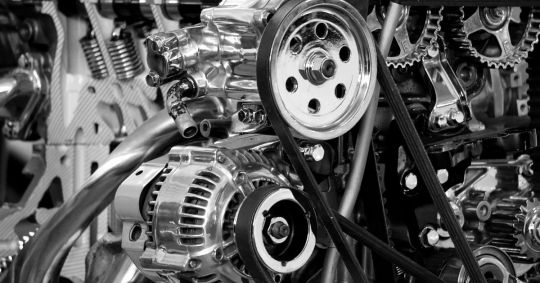Understanding the Basics of Torque Limiters and Their Functionality

In the world of industrial machinery and power transmission components, precision and safety are paramount. As stockists and distributors of brakes and specialist power transmission components, we understand the critical role that torque limiters play in ensuring smooth and secure operations. In this comprehensive guide, we will delve into the fundamentals of torque limiters, shedding light on their functionality and the benefits that they offer in various applications.
Torque Limiters: An Overview
Torque limiters, also known as overload clutches or torque limit couplings, are mechanical devices designed to protect machinery and equipment from excessive torque loads. These components are crucial in preventing damage to expensive equipment and ensuring the safety of both machinery and personnel.
Functionality
The primary function of torque limiters is to limit the torque transmitted between two connected shafts. When the torque applied to the system exceeds the pre-set limit, the torque limiter disengages, preventing further torque transfer. This disengagement can occur through various mechanisms, depending on the type of torque limiter used. The core purpose of this disengagement is to protect the machinery and components from damage caused by overloading.
Types of Torque Limiters
There are several types of torque limiters available, each designed to suit specific applications and torque range requirements. Let's explore a few common types:
1. Friction Torque Limiters
Friction torque limiters are widely used in various industrial applications. They operate by creating friction between two plates, which are typically connected to each shaft. When the torque exceeds the set limit, the plates slip against each other, preventing further torque transmission. The advantage of friction torque limiters is their ability to provide a gradual disengagement, allowing for controlled slip.
2. Ball Detent Torque Limiters
Ball detent torque limiters rely on the engagement of balls within the unit. These balls are held in place by springs, creating a detent mechanism. When the applied torque exceeds the predetermined limit, the balls disengage, preventing further torque transfer. Ball detent torque limiters are known for their quick and precise disengagement.
3. Shear Pin Torque Limiters
Shear pin torque limiters are simple yet effective devices. They consist of a shear pin connecting two shafts. When the torque load exceeds the shear pin's capacity, it shears, disconnecting the two shafts and preventing further torque transfer. These torque limiters are easy to reset but may require the replacement of the shear pin after each disengagement.
Applications and Benefits of Torque Limiters
Torque limiters find applications in a wide range of industries and scenarios, providing several notable benefits:
1. Machinery Protection
The primary purpose of torque limiters is to protect machinery from overload. By preventing excessive torque from reaching the connected equipment, they safeguard against costly damage, downtime, and maintenance. In industries where precision is crucial, such as manufacturing and processing, the use of torque limiters is essential.
2. Safety
Safety is a paramount concern in industrial settings. Torque limiters play a critical role in ensuring the safety of operators and other personnel by preventing accidents and equipment failures. In the event of an overload or malfunction, torque limiters swiftly disengage, reducing the risk of injury.
3. Cost Savings
The implementation of torque limiters can lead to significant cost savings. By preventing damage to machinery and reducing downtime, they contribute to increased operational efficiency and decreased maintenance expenses.
4. Versatility
Torque limiters are available in various types and configurations, making them suitable for a wide range of applications. Whether you're in the agricultural, automotive, or manufacturing industry, there's a torque limiter designed to meet your specific needs.
In the realm of stockists and distributors of brakes and specialist power transmission components, the importance of torque limiters cannot be overstated. These mechanical safeguards are integral to protecting machinery, ensuring safety, and optimising operational efficiency. Understanding the basics of torque limiters, their functionality, and the diverse benefits they offer is essential for anyone involved in industries where precision and reliability are paramount. As you explore the world of torque limiters, you'll discover a wide array of options to suit your specific requirements, all aimed at enhancing the performance and safety of your industrial machinery.
Speak to us today to find out more or browse our Knowledge Base for more news and inspiration.